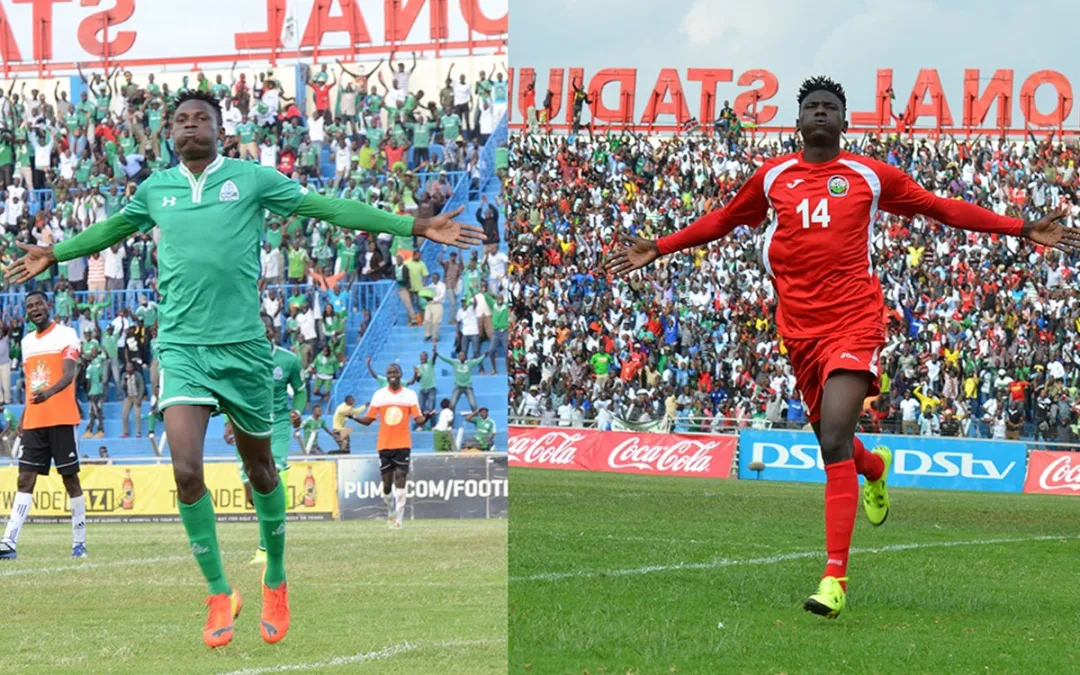The year 2015 will forever be etched in the hearts of K’Ogalo supporters, a sensational season that swept them into a whirlwind of emotions and unforgettable memories.
As the year unfolded, anxiety ran rampant among the fans when the star striker, the remarkable Dan Sserenkuma, left the team after a triumphant three-year tenure. Sserenkuma had been a cornerstone of K’Ogalo’s success, leading them to the long-coveted title in 2013 and sustaining that glory in subsequent years. His stellar performance caught the attention of several clubs from Armenia, making him a prized player on the market. The allure of international play surely beckoned him, prompting K’Ogalo to embark on a quest to reinforce their squad for the upcoming season, which also included the pivotal appointment of a new head coach.
This pivotal year marked the beginning of a new era for the club, with fresh leadership emerging after a grueling and contentious election period.
With Sserenkuma and Rama Salim departing from the offensive line, the club faced the urgent challenge of finding competent replacements. They also needed someone to fill the substantial void left earlier by Anthony “Teddy” Akumu—a player who could not only defend with the tenacity of a seasoned number six but also attack with the flair of a number ten and orchestrate play like a brilliant number eight. The team briefly turned to Ugandan Taliban Baba Kizito, whose tenure was merely a stopgap that lasted just a year.
Gor Mahia knew that they had to act swiftly and strategically to preserve the momentum of their previous successes. Thus, K’Ogalo plunged into a hunting expedition, fueled by hope and ambition, in search of another gem from Uganda.
Yet, as fate would have it, their pursuit in Uganda bore little fruit, prompting the club to shift their focus back to local talents. They triumphantly brought forth a vibrant mix of new players: Michael Olunga from Thika United, Khalid Aucho, Boniface Oluoch, and the spirited Ali Abondo, affectionately nicknamed ‘Teargas,’ all hailing from Tusker FC.
Michael Olunga, the tall, strikingly handsome forward who had been loaned to Thika United by Tusker’s head coach Francis Kimanzi, was introduced to the K’Ogalo faithful on a radiant evening at Nairobi City Stadium.
Curiosity buzzed through the crowd as fans speculated about what led to his signing. Everyone watched eagerly as the young striker took on the monumental challenge of stepping into Sserenkuma’s shoes. The pressure was palpable, but Olunga was resolute, eager to silence any doubters and showcase his undeniable talent.
With the unwavering support of the fans, Olunga burst onto the scene, electrifying the stadium with every touch. Every time he received the ball, the crowd erupted in encouragement, chanting for him to unleash a shot, creating a symphony of anticipation and excitement. The moments when his efforts rattled the goalpost became legend, inciting roars of approval and laughter from an adoring fanbase.
Then, on February 21, 2015, the moment everyone had been waiting for finally arrived. Michael Olunga danced through the defense and struck, scoring his debut goal against Mathare United at City Stadium. That day, the lad from Lucky Summer shocked K’Ogalo supporters with a dazzling display of finishing prowess, etching his name into the annals of KPL history with goals that would be celebrated for ages.
As the season progressed, Gor Mahia continued to shine, culminating in an extraordinary achievement: they won the league that season, remaining unbeaten—a feat that solidified their legacy and brought the K’Ogalo community together in joyous celebration..

